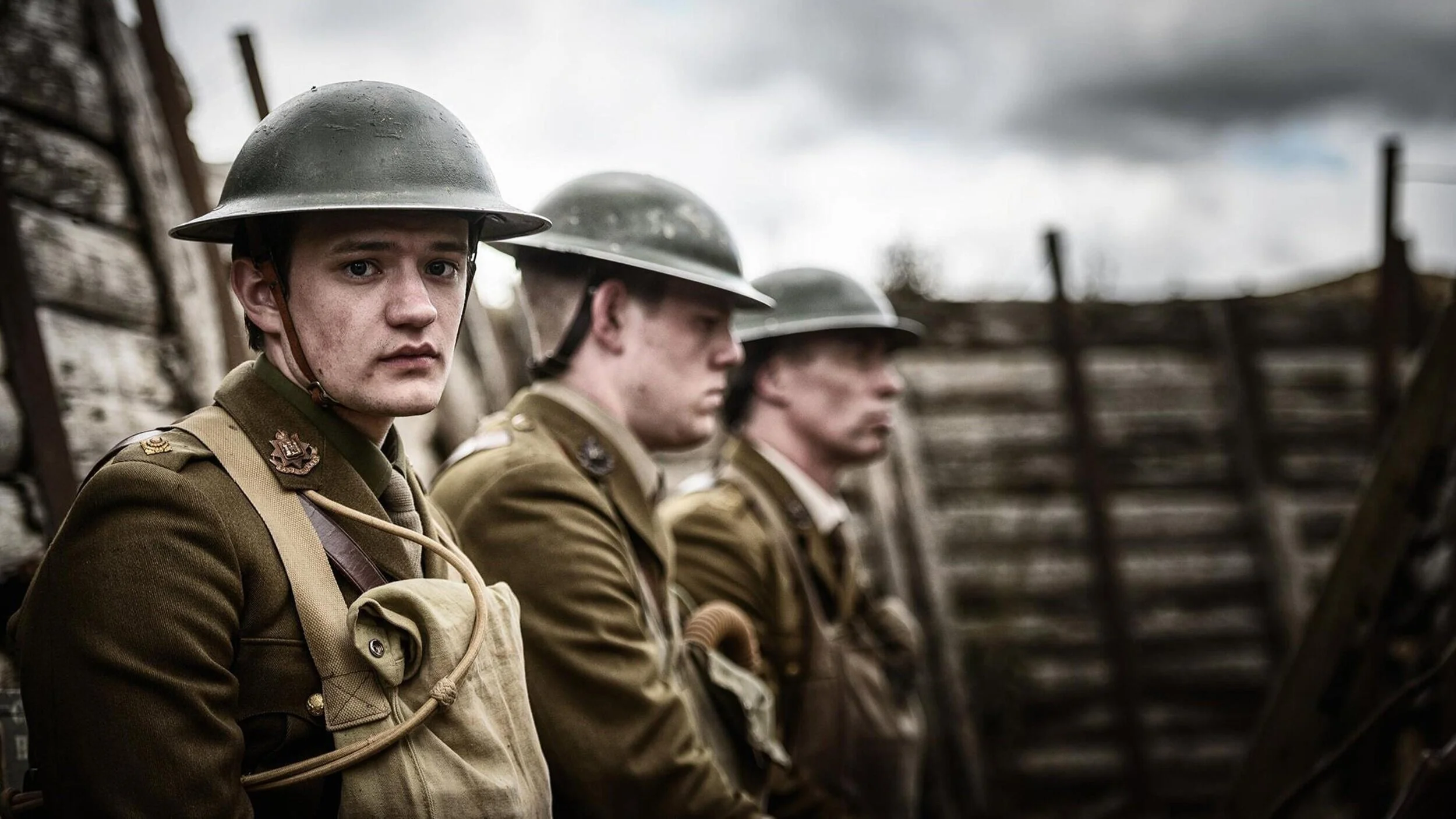Journey's End
A suitably traditional take on a classic tale of the First World War.
An honest, decent version of R. C. Sherriff's celebrated stage play of 1928, this adaptation by Simon Reade stays close to the original. Set over a few days in the spring of 1918, Journey's End portrays life in the trenches at a time when the company led by Captain Stanhope (Sam Claflin) is in position for six days. They have orders to hold the line, a German attack being imminent. We are invited to see this situation through the eyes of a new arrival, an inexperienced young officer named Raleigh (Asa Butterfield) still ignorant of the terrible realities of war. He is enthusiastic about fighting for his country and has used influence to get this particular assignment because Stanhope is engaged to his sister and he had known and admired him as a senior boy at school.
Being a film, this treatment incorporates two events which in the theatre took place off stage, namely the German attack and an earlier dangerous raid to get information by capturing a German. Nevertheless, most of the film's 108 minutes pass in the trenches convincingly recreated with a good sense of period in the look, the design and the performances. When the play was premiered it was acclaimed for the fact that at last, a decade on, a work of fiction was offering a recognisable portrait of what our soldiers had experienced. It acknowledged their courage but also revealed the horror and the inefficiency of those in command so ready to sacrifice lives.
If you want to witness this kind of material on film, Stanley Kubrick's Paths of Glory (1957) still leads the way with its strong storyline and brilliant direction. Journey's End, efficiently directed by Saul Dibb, is a more subdued affair, but for all the differences its appeal is recognisably akin to that of Christopher Nolan's recent Dunkirk. This piece is not epic offering instead an intimate portrait of a small group of men (Paul Bettany is on particularly good form as the second-in command, the schoolteacher Osborne, and Butterfield goes from strength to strength while others with featured roles include Tom Sturridge, Stephen Graham and Toby Jones). The latter though sheer screen presence makes something of the minor role of Private Mason who does the cooking.
But what all this amounts to is that, just as Dunkirk made a young audience sense what it was like to have been present at the time, Journey's End convincingly encapsulates what it meant to be a British soldier in France in 1918. Despite the rather odd fact of using distinctive but effective music by an Icelandic composer, Hildur Gudnadóttir, Journey's End comes across here as very, very British in its tone but in a way that never feels false. Sherriff spoke true when he wrote the play and that sense of authenticity is still felt a hundred years on from the events depicted. The film's audience is invited to share in and understand this period of history, one that proves less remote and easier to relate to than many a younger viewer might suppose.
MANSEL STIMPSON
Cast: Sam Claflin, Asa Butterfield, Toby Jones, Tom Sturridge, Stephen Graham, Paul Bettany, Robert Glenister, Miles Jupp, Rupert Wickham, Rose Reade.
Dir Saul Dibb, Pro Guy de Beaujeu and Simon Reade, Screenplay Simon Reade, from the play by R. C. Sherriff and the novel by R.C.Sherriff and Vernon Bartlett, Ph Laurie Rose, Pro Des Kristian Milsted, Ed Tania Reddin, Music Hildur Gudnadóttir and Natalie Holt, Costumes Anushia Nieradzik.
Fluidity Films/BFI/Wales Screen/Metro International Entertainment/British Film Company/Umedia-Lionsgate UK.
108 mins. UK/The Netherlands/Belgium. 2017. Rel: 2 February 2018. Cert. 12A.


